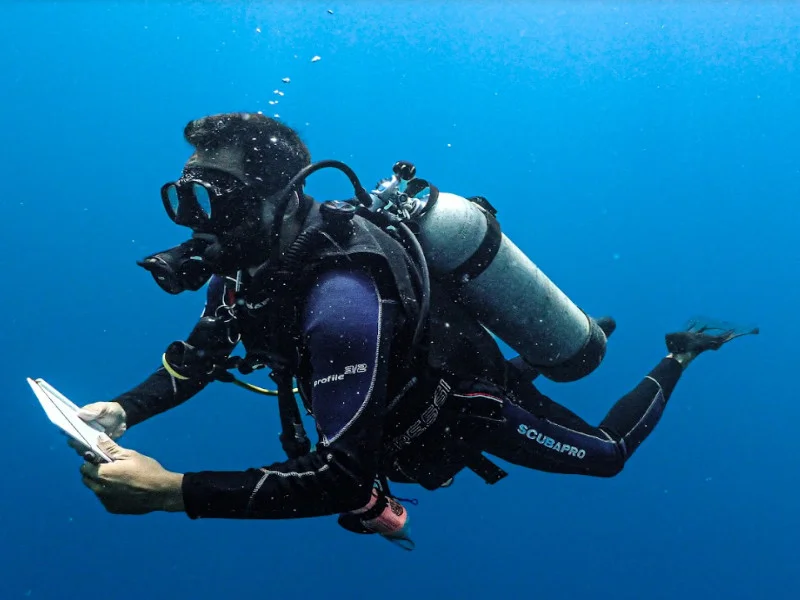
Great Idaho Gateway – Scuba diving opens up a world of breathtaking underwater beauty and exploration. For beginners, however, the prospect of diving can be both exhilarating and intimidating. Understanding the basics of diving, adhering to safety protocols, and preparing adequately can make your diving experience enjoyable and safe. Here are 8 essential tips to help you get started on your diving journey.
Before you dive, it’s crucial to receive proper training and certification from a recognized diving agency, such as PADI (Professional Association of Diving Instructors) or NAUI (National Association of Underwater Instructors). These courses provide essential knowledge about scuba diving equipment, underwater communication, and safety procedures. Certification ensures you’re trained to handle various diving situations and emergencies.
Selecting the right equipment is vital for a comfortable and safe diving experience. As a beginner, you will need a well-fitting wetsuit or drysuit, a mask that provides a clear field of vision, fins for efficient swimming, and a reliable regulator and buoyancy control device (BCD). Always ensure that your equipment is well-maintained and properly fitted. Renting gear from reputable dive shops is a good option if you’re not ready to invest in your own equipment.
Equalizing the pressure in your ears is essential as you descend. The pressure increases underwater, which can cause discomfort if not managed properly. Practice equalization techniques, such as swallowing, yawning, or gently pinching your nose and blowing, to balance the pressure in your ears and sinuses. Start equalizing early during your descent and continue regularly to prevent discomfort.
Buoyancy control is a key skill for diving safely and comfortably. Your buoyancy control device (BCD) helps you achieve neutral buoyancy, allowing you to float effortlessly at a desired depth. Practice adjusting your buoyancy by adding or releasing air from your BCD and using breath control. Maintaining neutral buoyancy reduces the risk of damaging coral reefs and helps conserve energy while diving.
Always dive with a buddy or as part of a group. Diving with a buddy ensures that you have someone to assist you in case of an emergency and helps enhance safety. Establish communication signals and check each other’s equipment before entering the water. A buddy system provides reassurance and contributes to a safer diving experience.
“Finding the Perfect Gift: Thoughtful Surprises for Your New Love Interest”
Adhering to safe diving practices is crucial for your safety. Avoid holding your breath while diving, as it can cause serious lung injuries. Maintain a slow and steady ascent to prevent decompression sickness (also known as “the bends”). Follow the dive plan, stay within your training limits, and be aware of your air supply throughout the dive. Always observe marine life from a respectful distance and avoid touching or disturbing underwater creatures.
Before diving, ensure you’re well-hydrated and rested. Avoid alcohol and heavy meals before a dive, as dehydration and fatigue can affect your performance and safety. Drinking plenty of water helps prevent dehydration, which can exacerbate the effects of pressure changes.
Familiarize yourself with the dive site before diving. Research the site’s conditions, depth, currents, and potential hazards. Understanding the environment helps you prepare for the dive and anticipate any challenges you may encounter.
Embarking on a scuba diving adventure as a beginner is both exciting and rewarding. By following these essential tips, you can ensure a safe and enjoyable experience as you explore the wonders of the underwater world. Proper training, equipment, and adherence to safety practices are key to becoming a confident and responsible diver. Dive in with preparation and enthusiasm, and you’ll unlock the beauty and thrill of the ocean’s depths.
“The Complete Information From Wikipedia about Scuba Diving“